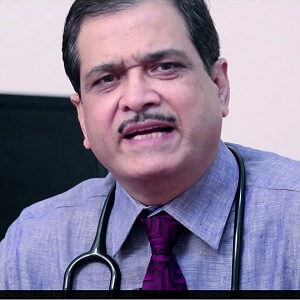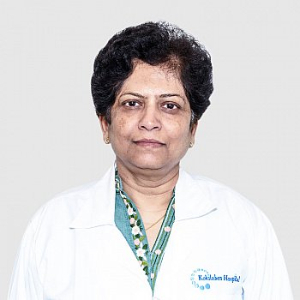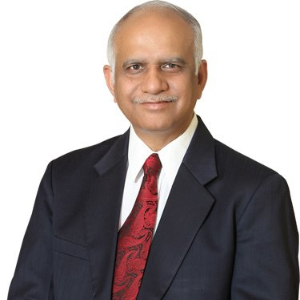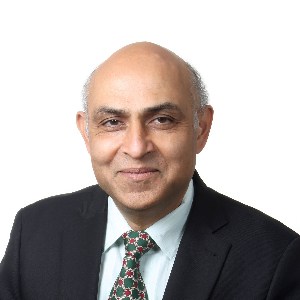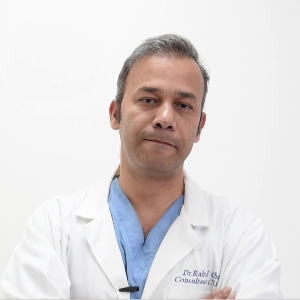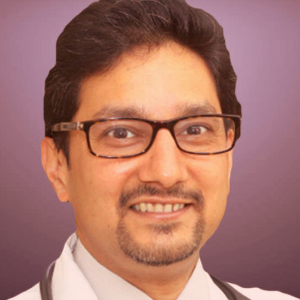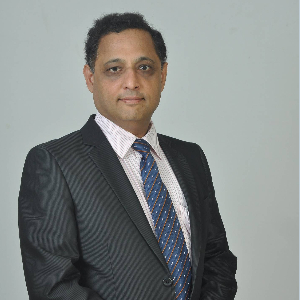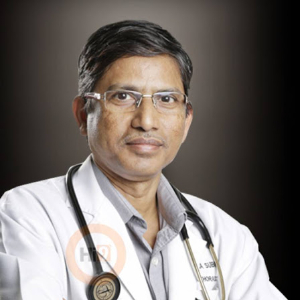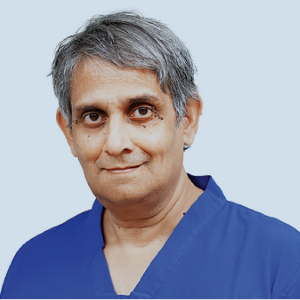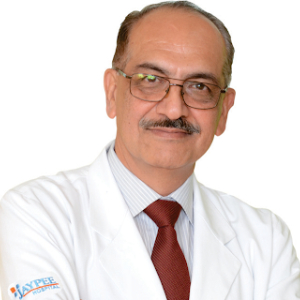Best Doctors in India for Cardiac Catheterization
- Interventional Cardiologist, New Delhi, India
- Over 26 years experience
Profile Highlights:
- Dr. Rajeev Kumar Rajput is one of the best Cardiologists in India with nearly 23 years of experience. He is a clinical cardiologist engaged in diagnosing and treating cardiovascular diseases.
- Dr. Rajput is currently working as a senior consultant with Indraprastha Apollo Hospitals, New Delhi, and also offers patient care at the Heart & Gynae Clinic.
- Dr. Rajeev Kumar Rajput specializes in Angiography and Interventional Cardiology. The treatments provided involve Neonatal and Infant cardiac surgeries, Device Closure, and Valve replacement. He has expertise in Aortic Aneurysm Surgery, Vascular Surgery, Percutaneous Coronary Interventions, Endovascular Repair, Cardiac Catheterisation, Open Heart Surgery, and MV replacement.
- Dr. Rajput is credited with publishing several papers in noted medical journals.
- Pediatric Cardiologist, Mumbai, India
- Over 20 years’ experience
Profile Highlights:
- Dr. Snehal Kulkarni is a renowned pediatric cardiologist who specializes in the management and treatment of fetal cardiac diseases, non-invasive pediatric cardiology, and Adult Congenital heart diseases.
- She is an expert in Diagnostic and Interventional Cardiac Catheterization, Stent implantation, Cardiac Pathology, and Balloon dilatation.
- She has more than 2 decades of experience in pediatric cardiology and has acquired her training from prestigious institutions in USA.
- Cardiac Surgeon, New Delhi, India
- Over 36 years’ experience
Profile Highlights:
- Dr. S. K Sinha is one of the top-most reputable cardiac surgeons in India who has performed over 10000 heart surgeries, 2000 minimal access cardiac surgeries cases and has 36+ years of rich experience.
- As one of the best cardiac surgeons in India, Dr. Sinha has both performed and taken lead as the administrative and clinical mentor in several cases where his supervision and mentorship paired with his vast knowledge have helped future cardiac surgeons shape their careers.
- Senior Consultant - Cardiology, Dwarka, New Delhi, India
- Over 35 years’ experience
Profile Highlights:
- Dr. Monik Mehta is one of the best interventional cardiologists in India for the implantation of heart failure devices.
- His specialization also lies in performing complex Angioplasties and complex coronary interventions.
- Having received his training from Mahidol University, Bangkok, Dr. Monik Mehta has also worked with the United Nations as a cardiologist in Cambodia.
- Currently, he works as a Senior Consultant – Cardiology, in Manipal Hospitals, Dwarka, New Delhi.
- Senior Cardiothoracic and Heart Lung Transplant Surgeon, New Delhi, India
- Over 23 years’ experience
Profile Highlights:
- Dr. Rahul Chandola is a renowned cardiothoracic and vascular surgeon in India specializing in Adult CTVS along with heart and lung transplant surgeries.
- He is an expert heart and lung transplant surgeon and has performed over 100 heart transplant surgeries with successful results in both adult and pediatric patients.
- Currently, he works as a Senior Cardiothoracic and Heart Lung Transplant Surgeon in PSRI Hospital, New Delhi.
- Interventional Cardiologist, New Delhi, India
- Over 20 years’ experience
Profile Highlights:
- Dr. Vishal Rastogi is a leading Interventional Cardiologist in Delhi specializing in Heart Failure Management.
- Dr. Vishal Rastogi has over 20 years of experience in the field and holds the credit for the largest number of Impella Left Ventricular Assist Device (LVAD) implants in critically ill patients in India.
- He has performed a large number of Coronary and Peripheral Angiographies and diagnostic cardiac catheterizations in both adult and pediatric patients among several other interventional cardiac procedures.
- Cardio Thoracic & Vascular Surgeon, Mumbai, India
- Over 30 years’ experience
Profile Highlights:
- Dr. Anvay Mulay is a well-known cardiothoracic and vascular surgeon in Mumbai and one of the best heart transplant surgeons in India.
- He holds an extensive experience of close to 3 decades and has been associated with renowned cardiac hospitals in India, US, and UK.
- Dr. Mulay is one of the top surgeons for Adult cardiac procedures in India. He was the first to introduce LVAD in West and Central India when he performed the surgery on a 49-year-old patient.
- Cardiothoracic & Vascular Surgeon, Hyderabad, India
- Over 30 years’ experience
Profile Highlights:
- Dr. G Rama Subramanyam is a well-known cardiothoracic and vascular surgeon who specializes in open-heart surgery and has performed more than 5000 such procedures since 1997.
- He is also an expert in Minimally Invasive Coronary Artery Bypass Grafting and heart valve surgeries that includes over 200 Ischemic mitral valve repair surgeries and 100 myxomatous and Rheumatic mitral valve repair surgeries.
- Heart Lung Transplant Surgeon, Chennai, India
- Over 40 years’ experience
Profile Highlights:
- Dr. K R Balakrishnan is a highly coveted cardiac surgeon in India and is probably one of the best heart transplant surgeons in the country.
- He has performed the largest number of heart transplants in the country including 180+ heart transplants, 23 lung transplants, and 9 heart & lung transplant procedures. He performed the first permanent artificial heart transplant in India with HeartMate II LVAD.
- Dr. K R Balakrishnan has over 40 years of experience in the field and has the expertise to perform cardiac surgeries on patients of all ages. He has performed over 16000 cardiac surgeries for various types of heart diseases and disorders till date.
- Cardiac Surgeon, Noida, India
- Over 30 years’ experience
Profile Highlights:
- Dr. Manoj Luthra is a highly experienced and renowned Cardiac surgeon who has 30+ years of experience and performed the first heart transplantation surgery in the Indian Armed Forces.
- Till date, Dr. Manoj Luthra has performed more than 12,000 cardiac surgeries including 8000 heart bypass surgeries. He has also performed many heart transplants and aneurysm surgeries.
Best Hospitals in India for Cardiac Catheterization
Lilavati Hospital & Research Centre, Mumbai
- City: Mumbai, India
Hospital Highlights:
- Lilavati Hospital & Research Centre is India’s premier multi-speciality tertiary care hospital and has been recognised as a global medical excellence centre.
- Lilavati Hospital & Research Centre has built an unrivalled level of trust with its patients over the years, thanks to a solid foundation that comprises cutting-edge facilities, the best medical competence, research, education, and charity endeavours.
- The hospital is quite proud of the fact that it now serves patients from all kinds of backgrounds, not just from the United States but from all around the world.
- The hospital has a total of 323 beds, one of the largest Intensive Care Units (ICUs), 12 Operation Theatres with modern amenities, over 300 consultants, and almost 1,800 personnel.
Venkateshwar Hospital, Dwarka, New Delhi
- City: New Delhi, India
Hospital Highlights:
- State-of-the-art technology and devoted healthcare professionals have been brought together under one roof at Venkateshwar Hospital to provide genuine medical care. The hospital’s professionals work together as a team to deliver the best possible treatment to their patients, using the most sophisticated equipment and information technology.
- Venkateshwar Hospital’s mission is to attain global excellence in healthcare by employing evidence-based, ethical clinical practices and cutting-edge technology by a team of highly skilled experts.
Marengo Asia Hospital, Faridabad
- City: Faridabad
Hospital Highlights:
In the sprawling city of Faridabad, where healthcare needs are diverse and ever-evolving, one institution has consistently stood out as a beacon of excellence in the field of medicine—Marengo Asia Hospital. Established with a vision to provide world-class healthcare services to the community it serves, Marengo Asia Hospital has emerged as a trusted name synonymous with quality, compassion, and innovation in healthcare.
MGM Healthcare, Chennai
- City: Chennai, India
Hospital Highlights:
- Located in Chennai, India, MGM Healthcare is a top multispecialty hospital that provides all medical services under one roof.
- Since its founding in 2019, MGM Healthcare has quickly become a leading national referral centre, creating several innovative flagship initiatives.
- MGM Healthcare combines next-generation medical and digital technologies to provide better patient results.
- With 12 centres of excellence, more than 400 inpatient beds, 100 intensive care unit beds, and 24/7 emergency care, MGM Healthcare leaves no chance in redefining the patient experience in Chennai.
- MGM Healthcare boasts 250+ expert doctors across 30+ departments, including Cardiology, Pulmonology, Neurology, Obstetrics & Gynaecology, and more.
- They house 12 specialized Centres of Excellence, including Neurosciences, Orthopaedics, and Multi-Organ Transplantation.
- Their team of doctors, nurses, and paramedics works together to give every patient individualized treatment.
Cardiac Catheterization
Cardiac Catheterization is a medical procedure that allows the doctor to evaluate heart conditions and diagnose & treat cardiovascular conditions. Other names for the procedure are coronary angiogram, cardiac cath, or heart cath.
The doctor will check the functioning of the blood vessels and how well they are supplying blood to the heart. He or she will inject a contrast dye into the blood vessels with the help of a catheter. This will help to create x-ray videos of the heart chambers, valves, and coronary arteries.
Why choose Cardiac Catheterization?
Depending on your conditions, your doctor will recommend the procedure to you to:
- Check the working of your heart muscles.
- Measuring pressure within your heart.
- Check the presence of heart diseases like heart valve disease, coronary artery disease, or disease of the aorta.
- Find the blocked or narrow blood vessels causing chest pain.
- Check the heart’s pumping function.
- Decide on your further treatment like bypass surgery or interventional procedure.
- Check the presence of congenital heart defects.
- Evaluate the problems with the valves of your heart.
- Measuring the oxygen amount in your heart.
Uses of Cardiac Catheterization
The nurse will guide the catheter with the help of a hollow plastic cover called a sheath. If it is in place, your doctor will start the tests required for the diagnosis of your condition. The procedure is useful for your doctor to find and evaluate the problems. Your doctor might perform some procedures during cardiac catheterization including:
- Coronary angiogram that includes injecting a dye with the help of a catheter. Your doctor will watch the path of the dye by an x-ray machine as the dye travels to check the narrowing of arteries or their blockages.
- Repair of the defects of the heart like closing a hole or stopping leaks from a valve.
- Ablation, for correcting heart arrhythmia or irregular heartbeat.
- Thrombectomy, done with the help of a catheter to remove blood clots that may dislodge & travel to other tissues or organs.
- Angioplasty, that involves the insertion of a catheter with a balloon at the tip into the artery. The balloon widens your artery upon inflation.
- Stent placement within your artery to keep the artery open. Stent placement involves placing a metal coil in the narrowed or blocked artery for preventing problems in the future.
- Balloon valvuloplasty, involving inflation of a balloon-tipped catheter into the blocked heart valves for opening the blockages.
- Biopsy for which the doctor will take a sample tissue from your heart.
Benefits of Cardiac Catheterization
Preparing for the procedure
Your doctor might instruct you if you need to prevent eating or drinking before Cardiac Catheterization. Usually, the doctors ask the patients to avoid drinking or eating from the night before the procedure. This is because liquids or foods may cause complications for the procedure. However, you may need to reschedule the procedure if you weren’t able to fast from midnight before the procedure. Your doctor might also instruct you to avoid taking certain medications.
You need to change into a hospital gown before Cardiac Catheterization. Your nurse will then put up an intravenous line or IV line to give you fluids & medication before, during, and after Cardiac Catheterization. Your nurse will also inject an anesthetic to numb the area before insertion of the catheter. Although you will be sedated during the procedure, you will be able to respond to the instructions of your nurse or doctor. Your nurse may ask you to take a deep breath, cough, or place your arm at various positions to get the best images of your arteries.
What to expect?
Before the procedure
Your nurse will check your pulse and your BP first. Your doctor will also you to remove your dentures or any jewelry that you might be wearing so that they don’t interfere with the images of the heart. He or she will ask you to wait in the pre-operative room before they could start the procedure.
During the procedure
Your doctor will perform the procedure in the operating room with special imaging & x-ray machines. The room will be a sterilized area to avoid any chances of infection. Your doctor will perform the procedure under sedation but you will be awake. However, he or she may administer general anesthesia for other procedures done with Cardiac Catheterization. The nurse will insert an IV line into your arm or hand for giving additional medications needed during the procedure. Your doctor will place electrodes or monitors on your chest to check the heartbeats during the procedure.
The nurse will shave the hair from the area of insertion of the catheter before the procedure. Before inserting the catheter into your artery, your doctor will administer an anesthetic to numb the site. Before there is numbness, you might feel a quick pain. After you start feeling numb, he or she will insert the catheter. Your doctor will make a cut or incision to access the artery. He or she will insert the plastic sheath within the cut to allow easy insertion of the catheter.
Now, according to your condition and the reason for Cardiac Catheterization in your case, the doctor will perform other procedures like biopsy or right heart catheterization or any other procedure. If you are awake during the procedure, your doctor may give you some instructions or tilt your table at times with the safety strap on.
After the procedure
Your doctor will ask you to rest in the recovery room for several hours after the procedure till the effects of anesthesia disappear. He or she will immediately remove the plastic sheath inserted in your body after the procedure. Your nurse will apply pressure on the insertion site after removing the catheter. You will go to a regular hospital after leaving the recovery room. You can eat or drink after the completion of the procedure. Your condition will help to decide if you can go home or need to stay back in the hospital for a day or two. If you have an additional procedure, your doctor might ask you to stay overnight in the hospital.
Results
Risks
Similar to other procedures, Cardiac Catheterization too, has some risks associated with it. However, major complications will rarely happen. The risks associated with this procedure may be:
- Bleeding
- Damage to the artery or heart
- Kidney damage
- Bruising
- Stroke
- Allergic reaction due to medications or dye
- Blood clots
- Heart attack
- Arrhythmia or irregular heart rhythm
- Infection
- Damage to the area of insertion of the catheter

